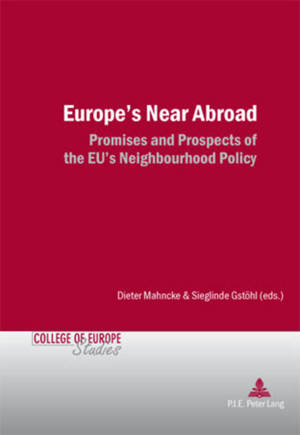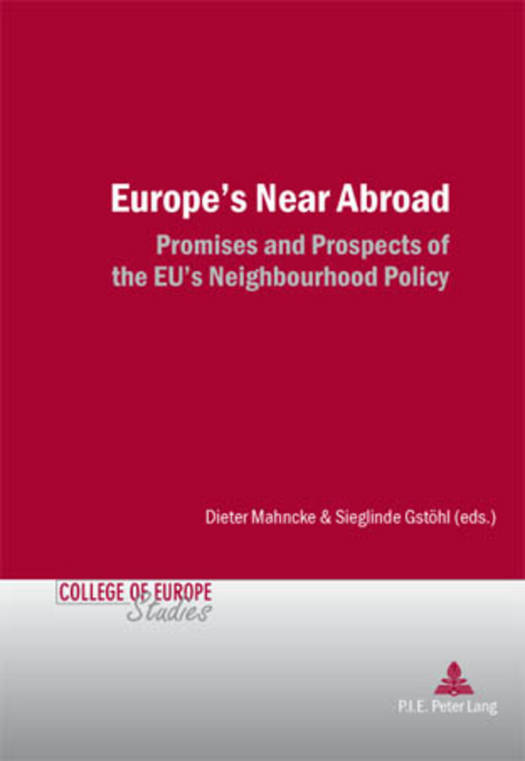
Bedankt voor het vertrouwen het afgelopen jaar! Om jou te bedanken bieden we GRATIS verzending (in België) aan op alles gedurende de hele maand januari.
- Afhalen na 1 uur in een winkel met voorraad
- In januari gratis thuislevering in België
- Ruim aanbod met 7 miljoen producten
Bedankt voor het vertrouwen het afgelopen jaar! Om jou te bedanken bieden we GRATIS verzending (in België) aan op alles gedurende de hele maand januari.
- Afhalen na 1 uur in een winkel met voorraad
- In januari gratis thuislevering in België
- Ruim aanbod met 7 miljoen producten
Zoeken
Europe's Near Abroad
Promises and Prospects of the Eu's Neighbourhood Policy
€ 81,45
+ 162 punten
Omschrijving
In the context of the enlargements of 2004 and 2007 the European Union needed a concept for the future relationship with its new neighbours. The result was the development of the European Neighbourhood Policy (ENP). In return for sharing European values and effectively implementing political, economic and institutional reforms, the EU offers economic incentives and closer ties to its eastern and southern neighbours. The ambitious objective of promoting stability, security and prosperity beyond its own borders raises questions about the Union's intentions, means and likely success.
This volume analyses the logic and institutional origins of the ENP and provides a critical assessment of the promises and prospects of the EU's broader neighbourhood policies. It does so both from an issue-oriented perspective (e.g. security, visa policy, trade, aid, human rights, good governance) and a regional standpoint: eastern Europe, the Mediterranean, the Western Balkans and Russia.
This volume analyses the logic and institutional origins of the ENP and provides a critical assessment of the promises and prospects of the EU's broader neighbourhood policies. It does so both from an issue-oriented perspective (e.g. security, visa policy, trade, aid, human rights, good governance) and a regional standpoint: eastern Europe, the Mediterranean, the Western Balkans and Russia.
Specificaties
Betrokkenen
- Uitgeverij:
Inhoud
- Aantal bladzijden:
- 322
- Taal:
- Engels
- Reeks:
- Reeksnummer:
- nr. 4
Eigenschappen
- Productcode (EAN):
- 9789052010472
- Verschijningsdatum:
- 23/05/2008
- Uitvoering:
- Paperback
- Formaat:
- Trade paperback (VS)
- Afmetingen:
- 150 mm x 220 mm
- Gewicht:
- 449 g

Alleen bij Standaard Boekhandel
+ 162 punten op je klantenkaart van Standaard Boekhandel
Beoordelingen
We publiceren alleen reviews die voldoen aan de voorwaarden voor reviews. Bekijk onze voorwaarden voor reviews.








